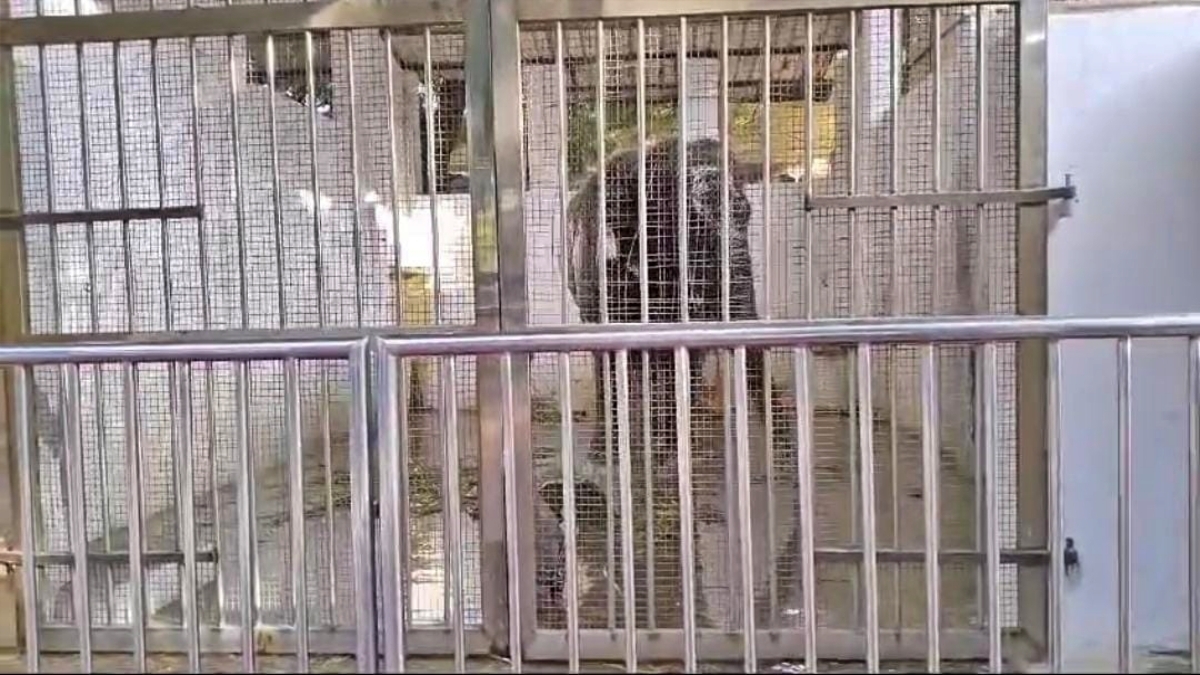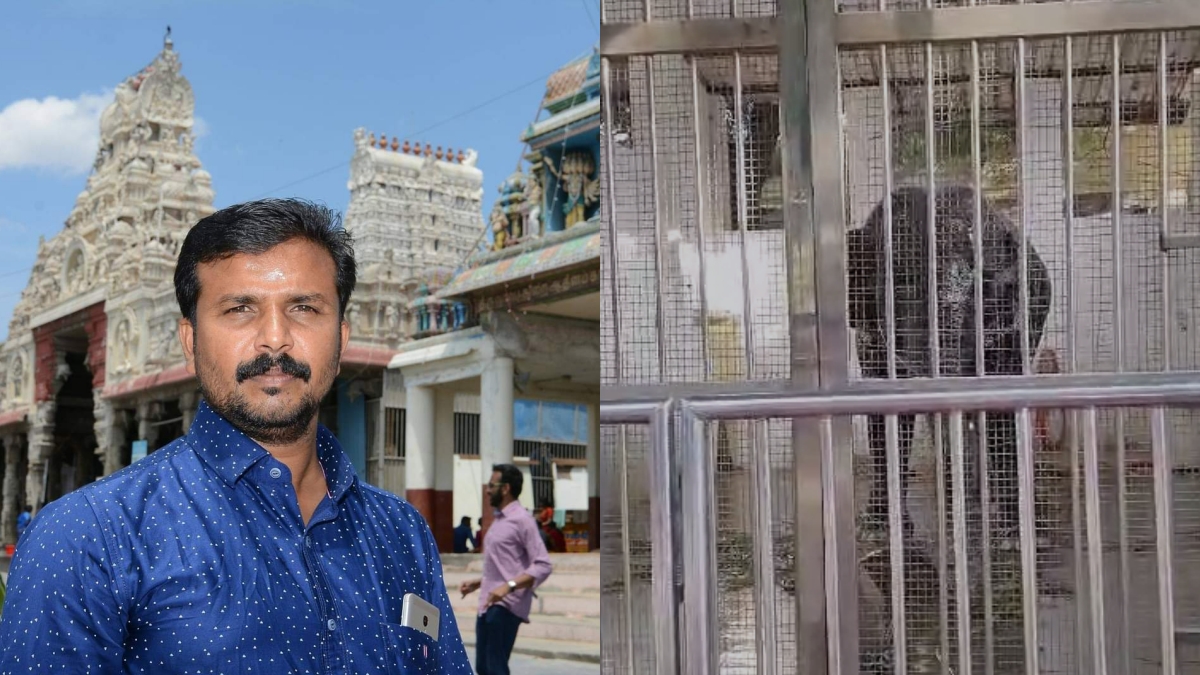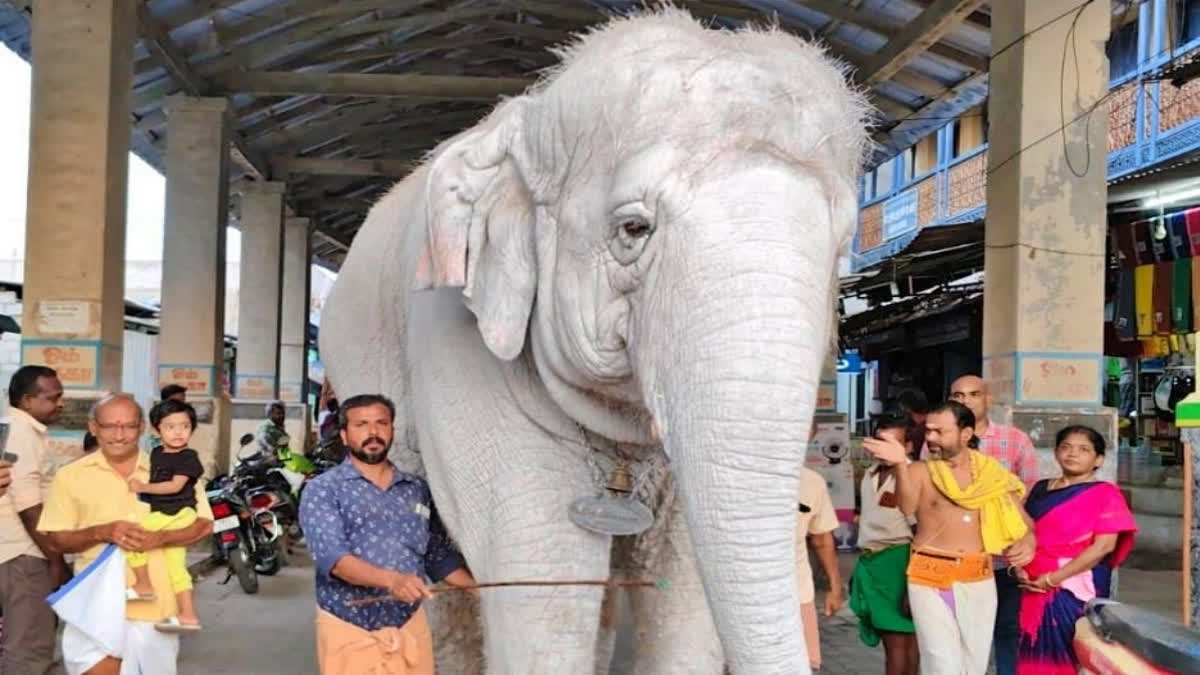Thoothukudi : The relationship between a mahout and an elephant is one of trust and understanding, forged over years of companionship. At the Tiruchendur Murugan Temple, that bond was tragically broken when Deivanai, the temple’s beloved 25-year-old elephant, fatally attacked her trusted mahout, Udayakumar (46) and his cousin, Sisubalan. Witnesses say that after realizing her mistake, the grief-stricken elephant attempted to wake Udayakumar by gently nudging him with her trunk—a poignant reminder of the deep emotional connection between the two.
Despite efforts by the remaining mahouts to calm her and recover the bodies, the grief-stricken elephant was inconsolable. Forest officer Kavin noted that Deivanai attempted to wake Udayakumar with her trunk, a poignant display of an emotional bond shattered in an instant. The elephant reportedly refused food for hours after the incident.

Sisubalan, who had long dreamed of becoming a mahout like his ancestors, had reportedly taken a selfie while touching Deivanai. The unfamiliar contact triggered her attack. Both victims were rushed to the hospital but succumbed to their injuries.

A Complex Legacy
Temple elephants hold a deep cultural and spiritual significance in Tamil Nadu. Deivanai herself has been a symbol of devotion, participating in temple processions and rituals. Yet, her life tells a different story—one of captivity, isolation, and stress. Activists and experts argue that elephants, even those raised in temples, are fundamentally wild animals with complex emotional needs.
“This tragedy underscores the need for a serious review of how we treat temple elephants,” says animal welfare activist Antony Rubin. “They endure immense stress, from walking on scorching roads to being decorated with heavy adornments. Their delicate feet and lack of sweat glands make such conditions unbearable.”

Kalidas of the Osai Ecosystem agrees, emphasizing that even domesticated elephants remain wild at heart. He notes that the unnatural conditions of captivity often lead to incidents like this.
Famous for its long-standing tradition of housing elephants, the Tiruchendur Murugan Temple has previously cared for iconic elephants like Purushothaman and Shanthi, with Purushothaman even appearing in Tamil movies. However, the recent incident casts a shadow on the welfare of these animals, often kept in confined and stressful environments.
Deivanai’s Troubled Past
Deivanai’s story isn’t unique. In 2020, another elephant by the same name killed a mahout’s assistant in Tiruparankundram before being sent to a rehabilitation center. That elephant, originally from Assam, had been leased to Tamil Nadu, but its tenure in the state has been marked by conflict and tragedy.
The current Deivanai has spent years in captivity, performing duties far removed from her natural instincts. Her companion at the Tiruchendur temple, Kumaran, died in 2015 due to illness, leaving Deivanai as the sole temple elephant.
An Emotional Outcry
The tragedy has reignited debates over the use of elephants in temple rituals. While some argue that these animals symbolize tradition and faith, others point to the physical and emotional toll on them. “Elephants are emotional beings. They grieve, they bond, and they feel pain deeply,” says District Forest Officer Revathi Ramanan, who also spoke about Deivanai’s refusal to eat after Udayakumar’s death.
The temple authorities conducted a brief purification ritual before resuming worship, but the community remains shaken. For many, the sight of Deivanai in her enclosure—an image of strength now tinged with sorrow—is a stark reminder of the cost of tradition.
A Call for Change
Experts and activists are urging a comprehensive reevaluation of how temple elephants are cared for. This includes revisiting leasing practices, creating humane guidelines, and ensuring elephants live in environments that respect their needs. As Tiruchendur mourns its losses, the tragedy of Deivanai serves as both a wake-up call and a plea for compassion. These gentle giants, often seen as divine symbols, are also living beings with emotions as profound as our own.



